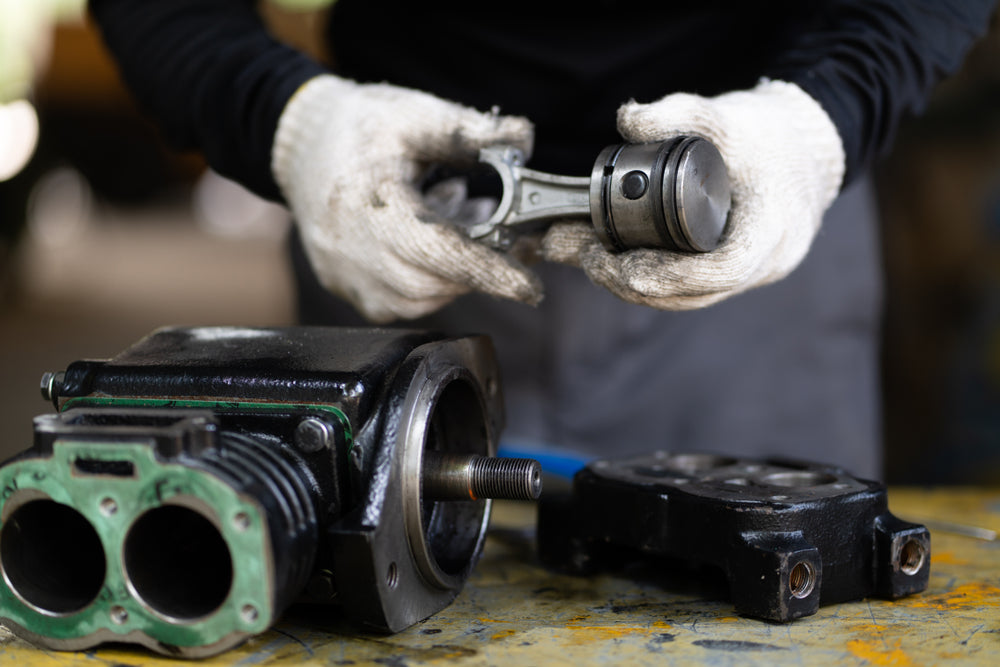When it comes to choosing an air compressor, one of the most important decisions you'll face is whether to opt for an oil-free pump or an oil-lubricated pump. Both types have their unique advantages and drawbacks, and understanding these differences is crucial for selecting the right compressor for your needs.
Oil-Free Air Compressors
Oil-free air compressors, as the name suggests, do not use oil for lubrication in the compression chamber. Instead, they rely on alternative methods such as Teflon-coated screw elements or special coatings to function without oil.
Advantages
1. Clean air output: Ideal for industries requiring contamination-free air, such as food and beverage, pharmaceuticals, and electronics manufacturing
2. Lower maintenance: No need to change oil or oil filters regularly
3. Environmentally friendly: Eliminates the risk of oil leaks or spills
4. Lighter weight: Generally more portable due to fewer components
Disadvantages
1. Higher initial cost: Often more expensive upfront
2. Shorter lifespan: Once the frictionless coating wears off, the compressor may need replacement
3. Louder operation: Typically noisier than oil-lubricated models
4. Less efficient: Run hotter and may require larger air dryers
Oil-Lubricated Air Compressors
Oil-lubricated compressors use oil to lubricate moving parts, cool the system, and act as a sealant.
Advantages
1. Longer lifespan: Well-maintained oil-lubricated compressors often last longer
2. More efficient: Oil helps cool the system, leading to better energy efficiency
3. Quieter operation: The oil helps reduce noise levels
4. Lower long-term costs: Despite higher maintenance needs, they can be more cost-effective over time
Disadvantages
1. Higher maintenance: Requires regular oil and filter changes
2. Risk of contamination: Potential for oil in the compressed air output
3. Environmental concerns: Possibility of oil leaks or spills
4. Less suitable for sensitive applications: Not ideal for industries requiring absolutely oil-free air
Choosing the Right Compressor
When deciding between oil-free and oil-lubricated compressors, consider the following factors:
1. Application requirements: Industries like food processing or pharmaceuticals may require oil-free air
2. Maintenance capacity: Oil-lubricated compressors need more frequent maintenance
3. Operating environment: Oil-free compressors are better suited for environments where oil spills could be problematic
4. Budget: Consider both initial costs and long-term operational expenses
5. Noise sensitivity: If noise is a concern, oil-lubricated compressors are generally quieter
In conclusion, both oil-free and oil-lubricated air compressors have their place in various industries and applications. By carefully evaluating your specific needs and constraints, you can choose the compressor type that best fits your requirements, ensuring optimal performance and efficiency for your operations.

